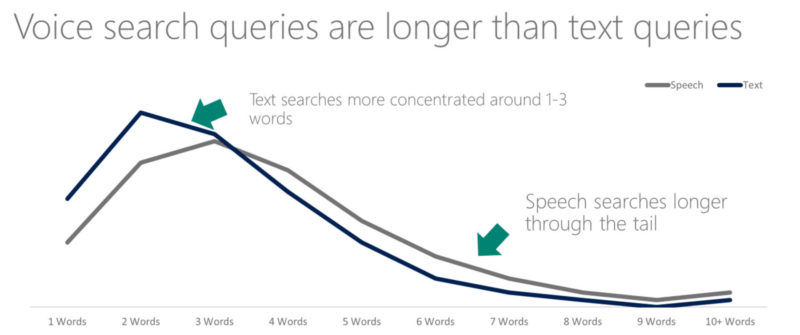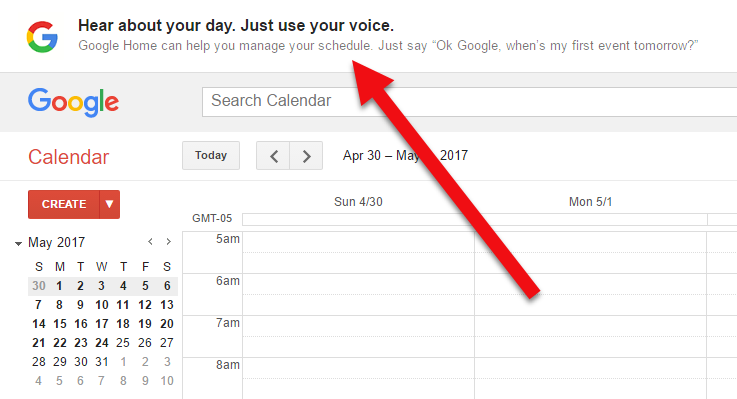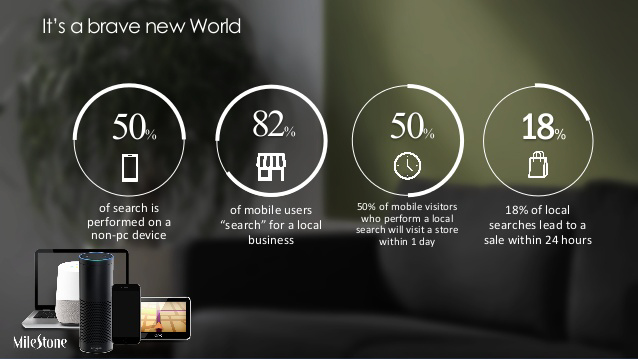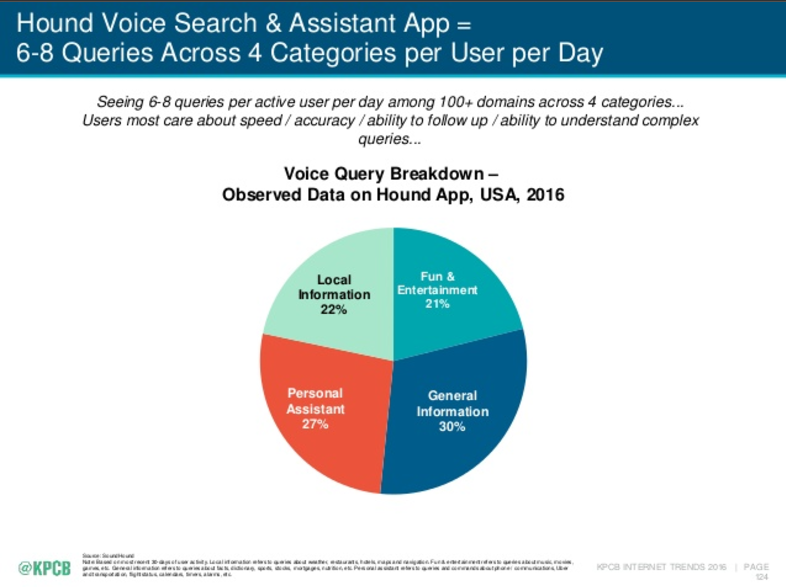
The way people search for information online is changing. Increasingly, people are using voice search on their smartphones, tablets or voice assistants (like the Amazon Echo or Google Home devices) to search for information on the internet. Siri is your best friend if you’re using an Apple device, Google voice search is popular on Android devices and Microsoft’s Cortana is useful on your PC and smartphone using their app:
According to Hitwise, nearly 60 percent of searches are now performed on a mobile device. With more and more people using mobile devices to search, people often find it’s easier to use their voice to search instead of typing on tiny screens.
This means SEO professionals need to start thinking about content and SEO differently.
Searching by voice is a hot topic among forward-thinking SEO professionals. At SMX West 2017 last month, Benu Aggarwal had a popular session on the subject, “Optimizing Content for Voice Search and Virtual Assistants.” During that session, she gave some great tips on how SEOs can start thinking and planning for a different type of search strategy for voice searches.
A new world for search
Mobile devices, smartphones and smart home devices featuring digital assistants like Siri, Cortana, Alexa and Google Assistant are invading our lives.
These new voice devices and technology make it easier than ever for people to simply ask a question and get information from their device. This allows for a more natural way to interact with machines using a conversational voice. Using your voice, you can now play music, turn on your lights, search for a local pizza restaurant, order products and get information on everything from breaking news to the weather.
And interconnectivity between various devices is an interesting part of voice search technology. For instance, a Google Home tip can even show up on your desktop, giving you advice on how you can best use your Google Home voice assistant:
During her SMX West presentation, Aggarwal shared the follow stats:
This slide shows the importance of mobile and local search. But how might voice search factor in?
According to the 2016 Internet Trends Report, voice search is rapidly gaining market share:
In 2015, 1.7 million voice-first devices were shipped. In 2016, that number increased to 6.5 million devices. VoiceLabs predicts that in 2017, 24.5 million voice-first devices will be shipped.
The big question for SEO professionals is: How do you create a content and SEO strategy for this new way to search?
How to optimize for voice search
Since search engines were first introduced to the mainstream in the mid-1990s, users have learned how to succinctly enter keyword phrases to find information on the internet using a PC. Unlike search keyword phrases that you type into your computer, voice search is more conversational and natural in tone. Voice search is also typically mobile and often locally focused.
For example, when I traveled to San Jose for SMX West, my smartphone knew where I was physically located. So when I searched for a restaurant, my phone anticipated where I was (not in Cedar Rapids, Iowa), and the search results for restaurants were all in San Jose.
Because they’re more conversational, voice search queries are also usually longer than typical text keyword search queries.

Image Credit: Purna Virji, citing Bing data
It’s important to remember that the whole purpose of these new technologies is for the device to provide the best results for on-the-go searchers. To do this, the devices try to find easily identifiable, short and relevant pieces of content to serve back to the searcher. Here are some tips that can help you optimize for voice search.
What are people searching for?
According to the Internet Trends Report 2016, people are using voice search for a variety of searches. With an estimated 22 percent searching for local content and information, local businesses (and agencies that do local SEO) need to start strategizing for local voice search.
Claim your Google My Business listing
If you haven’t claimed your Google My Business listing yet, what are you waiting for? It’s time! Claiming and optimizing Google My Business is a great way for Google to find out more information about your business, like the category of business you’re in, your address, phone number, business hours and more.
Since many voice searches are local in nature, having your Google My Business listing claimed and up-to-date can help increase your chances of showing up when a voice search is done pertaining to your local business, location or business category.
Conversational keywords
Now keywords are no longer just keywords. Keywords in the voice search world are long-tail+. The “plus” refers to the conversational phrases that you need to add when optimizing for conversational voice search.
Your keyword strategy must now be more conversational in nature and mimic how real people talk and ask questions verbally. Start thinking about the types of questions you get when customers call you on the phone to ask questions about your business, then start documenting and recording the exact words they use when they talk to your customer service representatives.
Once you have a list of questions and statements your customers give you over the phone, you can then start creating content pages that focus on those longer, more conversational search terms.
Frequently Asked Questions (FAQ) pages
A great way to use the aforementioned customer data is to create FAQ pages that focus on those long-tail+ conversational keyword phrases. Try to group common questions on the same page. Go for natural-sounding questions and phrases instead of the old SEO-keyword phrases you’re probably used to using. If you need to create several different pages so that the voice search technologies have a better chance of pulling information from your site, go for it!
Also, anticipate more direct questions from searchers. Searches like “best digital camera” will start to disappear, and hyper-specific searches will become more popular. Example: “Alexa, where can I find a waterproof video camera that works with Facebook Live?” Offer quick, succinct answers to questions that voice searchers are asking.
It can seem like a daunting task, but creating these individual pages and snippets of content centered around specific semantic questions that people are asking can not only help your site show up in voice search results, it can also increase your chances of appearing in a Google “Featured Snippet.”
Structured data markup
Use structured data markup (applying the correct schemas) to give these voice search devices even more information about your site and content. Structured data markup from schema.org is crucial for your site, as it defines more specific information and makes it easier for search engines to accurately parse your content and understand its context.
It’s a new world for SEO!
Voice search is not going away. It’s time SEOs start optimizing their sites for this brave new world of voice search — so they’re not left behind.
View Benu Aggarwal’s full presentation from SMX West here:
Opinions expressed in this article are those of the guest author and not necessarily Search Engine Land. Staff authors are listed here.





